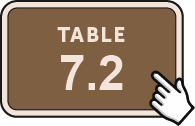Show Navigation Menu
Section Two : Becoming a Researcher/Scholar
Introduction | The Writing Process | Voice | Tone | Using a Style Guide | Paraphrasing vs. Quoting |
Chapter 7: Preparing for Writing
Hide Navigation Menu
Section 2 Becoming a Researcher/Scholar / Chapter 7 Preparing for Writing
4. Tone
Academic tone refers to the particular style of a writer’s paper that is unique to academia. Tone and voice are related notions in academic writing. Voice reveals the person who is writing the paper, while tone reveals the style in which it is written. Academic tone is not colloquial or informal, and should be both professional and engaging. This means that it should utilize professional language, avoid bias, and yet maintain a tone that is interesting to the reader. Academic writing has long had a reputation for being dull, dry, and uninteresting (Lepore, 2013). Ideally, scholarly work should avoid all elements of that reputation. Lepore (2013) refers to academic writing as “a vast moat of dreadful prose” (para. 6), perhaps referring to some authors’ tendency to use jargon and overly dense language. Academic tone does not mean exchanging all monosyllabic words for polysyllabic words. It does not mean heightened obscurity or elaboration of ideas. Academic tone means establishing a writing style that is objective, clear, and precise (Sherlock, 2008). Objectivity and economy of expression are essential elements to consider in academic writing.
Objectivity
Arguments should be presented objectively, and avoid emotional, subjective, or judgmental language. “Smith totally missed a crucial piece of data” is not acceptable language for an academic paper; however, “Smith did not address the use of outdated testing material” is acceptable (APA, 2010). The first sentence implies an emotional reaction to Smith’s omission of a particular topic, while the second sentence presents an objective observation that Smith omitted a particular topic from their article. Words that imply a personal belief or judgment, such as, “The sample was rather small” or, “I believe this author was biased in his approach,” represent other facets of subjective language. Words such as rather or believe imply a subjective judgment, which is inappropriate in an academic work. Academic writing should strive to present objective judgments based in empirical data and devoid of bias.
It is vital that academic writing is free of “implied or irrelevant evaluation” of any group or individual (APA, 2010, p. 70). Writers and researchers must be careful not to allow any biased or prejudiced assumptions or attitudes to filter into their writing. This includes any words, phrases, or terms that could imply bias against a person or persons based on “gender, sexual orientation, racial or ethnic group, disability, or age” (APA, 2010, p. 71). More information about reducing and avoiding bias can be found in the Publication Manual for the American Psychological Association.
Although not as crucial for academic writing as avoiding bias, it is best to avoid using first person singular or plural in academic writing. An exception to this guideline is the presentation of a doctoral learner's own research in the dissertation.
While is it not prohibited, it is better to present research as it stands, without including “I” or “we” statements. This allows the reader to perceive the author(s) as more objective (Sherlock, 2008). It is also best to avoid using phrases such as, “This author believes … ," as it adds unnecessary words to the paragraph. It is also advisable to avoid using “one” (e.g., "one might assume this is true, but one must never assume"). Although an academic writer should aim for objectivity and a certain amount of distance in their writing, overuse of “one” can “torture sentences in unnecessarily passive constructions” (Sherlock, 2008, para. 2). Although use of the first person is not prohibited in APA Style, exercise caution in using first person plural. It is acceptable to refer to a group of which the writer a member, but refrain from using the royal we. This may cause confusion for readers, who may wonder if it was a team of authors who created the article, despite the singular name in the byline (APA, 2010).
Vocabulary
Sophisticated vocabulary is expected of academic writing, but this does not mean replacing every word in a document with a longer synonym culled from a thesaurus. Ragins (2012) conducted an informal poll of reviewers for the journal Academy of Management Review, asking for their pet peeves in academic writing. She found that the most common source of annoyance was “foggy writing,” writing in which the content is obscured by needlessly complex language or jargon (p. 495). As a rule, the use of jargon should be kept to a minimum. In certain types of technical writing, jargon is necessary and unavoidable. For example, the general public might say that gender and sex are equivalent terms, but in clinical psychology, there is a distinction between gender and sex. In clinical psychology research, using jargon to describe gender and sex is necessary (Heppner & Heppner, 2004). However, in most academic papers, writers should avoid jargon, as it can “introduce vague or mentalistic constructs that are not easily measurable” (Heppner & Heppner, 2004, p. 101). It can leave the reader in a state of confusion and frustration, as the ideas the writer has worked hard to express are clouded by needlessly complex words.
In the spirit of avoiding jargon, keep sentences concise and clear. Obscuring a statement with unnecessary words bores the reader and increases the chance that the main point of the statement will be misunderstood. Writers should eliminate unnecessary words, and refrain from using redundant language. It may be tempting to use redundant or overly complex language for dramatic effect or emphasis, but writers should not succumb to this temptation.
Ragins (2012) summarized the reason for this guiding principle nicely when she wrote, “The reader should be able to understand your key points and follow your logic without having to reread the manuscript” (p. 494). Doctoral learners would do well to recall the number of times it was necessary to reread some of the dense articles or books they have been assigned in order to make sense of them. Did that make for a pleasant and engaging learning experience, or did it require working twice as hard just to comprehend the material? Learners should remember such experiences as they write their own papers. A key concern in writing is to consider the readers of the paper. When writing a paper for a class, although the intended audience is the instructor, treat the instructor as the representative of the academic community and write the paper for that larger audience.
As the intended audience is either a singular member of the academic community or the academic community as a whole, it is best to avoid informal language, which includes colloquialisms and slang. Colloquial language is appropriate for conversations and informal dialogues between colleagues, but it is not appropriate for academic writing. Use of informal language in a paper can undermine the author’s academic credibility (Heppner & Heppner, 2004).

Voice reveals the person who is writing the paper, while tone reveals the style in which it is written.

Table 7.2:
Improving Academic Voice and Tone
Sophisticated vocabulary is expected of academic writing, but this does not mean replacing every word in a document with a longer synonym culled from a thesaurus.